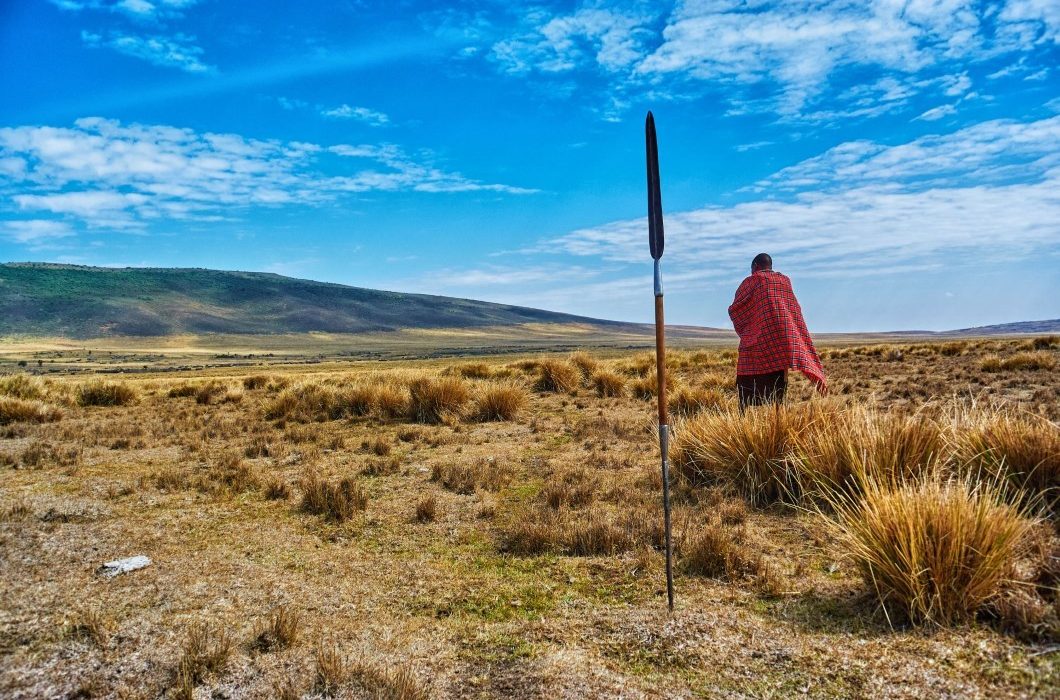
You might also like:
The Maasai people are driven from their own lands. This is the sad finding of the Oakland Institute’s report “Losing the Serengeti, the Maasai Land That Was to Last Forever”. This study denounces the intimidation of these semi-nomadic herders who live in Kenya and Tanzania and more particularly in the Serengeti region, known worldwide for the richness of its wildlife. Under pressure, the Maasai had to gradually give way to tourists and hunters.
As the Oakland Institute reveals, over the years, tens of thousands of Maasai have been left homeless in the name of ecosystem conservation. By delimiting “protected” areas or ceding them to new owners, the Tanzanian government is reported to have pushed the Maasai into smaller and smaller arable plots, making livestock grazing and the cultivation of allotment gardens impossible, the report denounces. As a result, famine and disease have become widespread among indigenous people who denounce “intimidation and violence” by police forces.
This pressure is not only exerted by the government; it is also caused by Safari companies operating in the country to the benefit of tourism. Thus, the report highlights the devastating impact of two enterprises on the lives and livelihoods of Maasai. The report points to Tanzania Conservation Limited (TCL) and Ortello Business Corporation (OBC). The first, specialized in ecotourism, is owned by Thomson Safaris, American tour operators. According to the Maasai, the company is cooperating with local police to deny villagers access to water and land. The report stresses that the police beat and arrest the indigenous people.
The second is controlled from the United Arab Emirates. Named Ortello Business Corporation (OBC), it organizes, according to the report, hunting trips for the country’s royal family and their guests. The company has been in existence for 25 years. And since then, during reserved hunting trips, the CBO has violently expelled the Maasai. The Oakland Institute reveals that many houses have been burned and thousands of rare animals have been killed. Although Tanzania’s Ministry of Natural Resources cancelled the CBO license last year, the company remains active in the area, leaving villagers in constant fear.

“As tourism becomes one of the most dynamic sectors of Tanzania’s economy, game safaris and game parks are wreaking havoc on Maasai lives and livelihoods,” said Anuradha Mittal, Director of the Oakland Institute. But this is not just a specific region, it is a reality that is too familiar to indigenous communities around the world. In too many places, governments, societies and even major conservation groups agree in the name of conservation, not only to drive Aboriginal people off their lands, but also to force them to disappear.”
It was in the 1950s, with a series of laws on the “conservation” of land and wildlife in northern Tanzania, that Maasai gradually began to be driven from their ancestral lands. And since then, new laws have further reduced grazing rights for cattle and the rights to cultivate the land that led to widespread famine. “The Tanzanian government says these laws were created to conserve and protect ecosystems, but this then allows companies like OBC to build a private airstrip on the same land,” said Elizabeth Fraser, policy analyst for Oakland Institute. It’s not conservation, it’s complete destruction.”
Source: tourism-review.com
